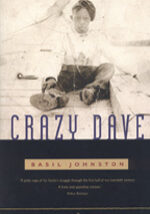In 701 B.C. the Assyrian empire was in its ascendancy. It had already vanquished the kingdom of Israel to the north including the capital at Samaria. It then prepared an assault on Judah and its capital at Jerusalem.
But in one of those significant events that changes the course of world history, Assyria was repelled. Jerusalem was saved until 586 B.C. when the Babylonians sacked the city, forcing its leadership class into exile.
Henry Aubin, in a major feat of scholarship, determines that Jerusalem was aided by a Kushite army from Africa which had marched northeast from the Nile valley. While the Bible attributes the Assyrian retreat to an angel and secular commentators cite pestilence, Aubin, in a meticulously documented work, demonstrates that an alliance with the African nation of Kush bolstered Jerusalem’s defences.
Kush, also known as Nubia, was located in what is now southern Egypt and northern Sudan. A monarchy that existed for more than 1000 years, from 900 B.C. to A.D. 350, Kushites held sway over Egypt from 712 B.C. to about 660 B.C. Of Egypt’s 31 dynasties, this, the 25th Dynasty, is the only one that all scholars agree, was black.
The commander of the Kushite expeditionary force was Taharqa (or as the Bible calls him Tirhakah). This Kushite prince, who had his own interests in halting Assyrian expansion, likely caught the aggressors by surprise as they prepared their siege of Jerusalem.
Aubin offers a thrilling military history and a stirring political analysis of the ancient world. He also sees the event as influential over the centuries.
The Kushite rescue of the Hebrew kingdom of Judah enabled the fragile, war-ravaged state to endure, to nurse itself back to economic and demographic health, and allowed the Hebrew religion, Yahwism, to evolve within the next several centuries into Judaism. Thus emerged the monotheistic trunk supporting Christianity and Islam.

“This story…is absolutely riveting, partly because of the wonderful oral nature of Johnston’s writing here, and partly because it is told from a native point of view.”
The Globe and Mail
“As Dave McLeod and his family struggle in the constant battle of assimilation, of maintaining a unique culture, of finding work outside the reserve, with language and inter-marriage at the focal points, Johnston holds true to his notion that Dave can be read as a symbol of larger problems in society…Crazy Dave is an anecdote to all those blockbuster titles about the rich and famous.”
The Toronto Star
Key Porter CAN/99
Minnesota Historical Society Press/US/2002
CRAZY DAVE
A Memoir
This is the story of Rosa McLeod and her son David. Life didn’t hand them many miracles. Born in 1876, she was the daughter of a proud Native tradition, a Pottawatomi Indian whose grandmother had fled Wisconsin with others in the 1830s to seek sanctuary with the Ojibway further north in what became Canada.
David, her youngest son, suffered from Down’s Syndrome, called variously mentally retarded or “Mongoloid.”
Through the lives of these two impoverished and marginalized souls we see how they fit in the larger world of the Indian reservation and the country during the two World Wars. We also see bravery, laughter, love and outrageous injustice
In one heartbreaking episode, David, dressed in the remnants of a soldier’s uniform, given to him by his older brothers, becomes lost in a neighboring Canadian town during WWII. Speaking no language intelligible to the drunken louts in the tavern, David is mistaken for an invading Japanese spy, and is shackled beaten and jailed. The absurdity makes you laugh and the injustice makes you weep.
Basil Johnston, the distinguished and much honored Native author and scholar offers a portrait of life on the Cape Croker Indian Reserve through the experiences of his grandmother Rosa, his unfortunate Uncle David, and their neighbors and tormentors that will amuse, enrage, illuminate and inspire.
Basil Johnston is the author of eight books, the recipient of the Order of Ontario, an honorary doctorate from the University of Toronto. He lived at the Cape Croker Reserve until his death in 2015.